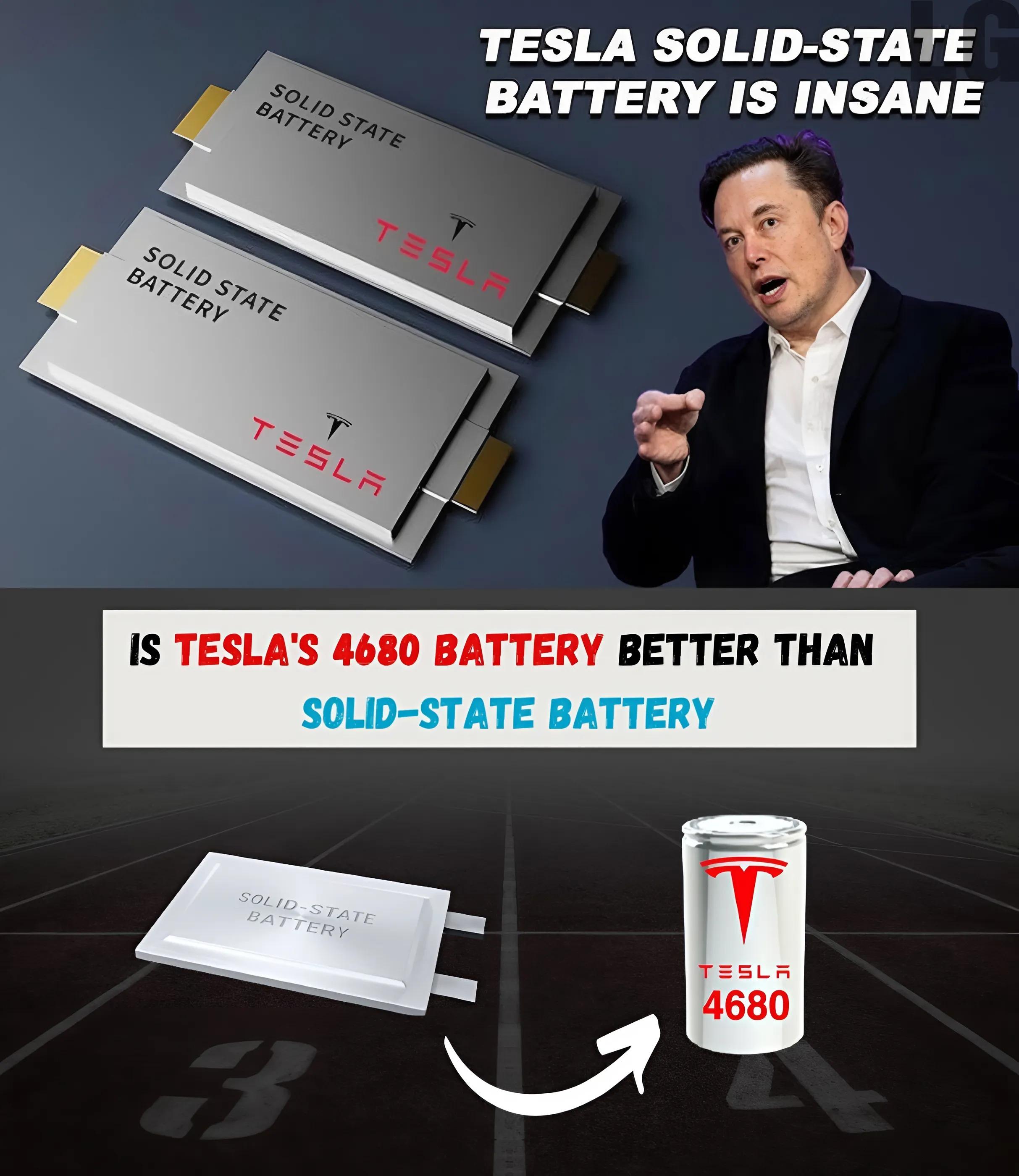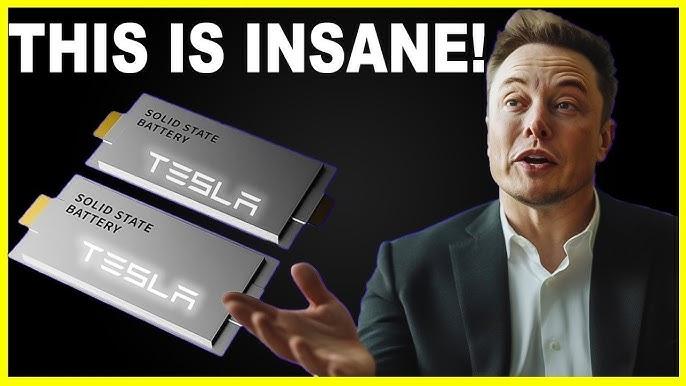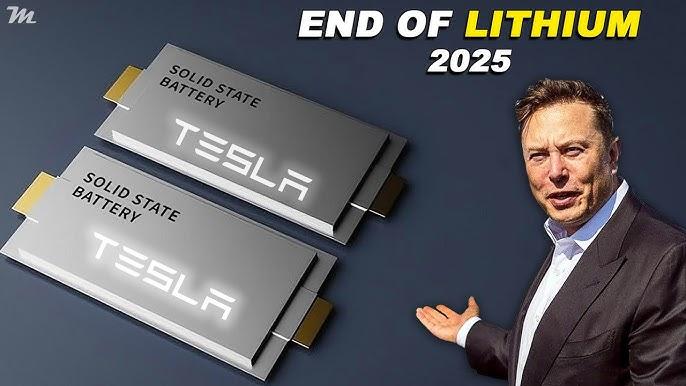In an unprecedented move that has sent shockwaves through the automotive and energy industries, Elon Musk has announced the development of Tesla’s groundbreaking solid-state battery, set to debut in 2025. This revolutionary technology promises to redefine electric vehicle (EV) performance, efficiency, and sustainability, offering a glimpse into the future of energy storage.
Tesla’s solid-state battery, which is slated for mass production within the next two years, represents a major leap forward from the current lithium-ion batteries used in electric vehicles today.
Unlike conventional lithium-ion batteries, which use liquid electrolytes to facilitate energy transfer, solid-state batteries replace these liquid components with a solid electrolyte.
This innovation not only significantly increases energy density, but it also improves the battery’s safety and lifespan, addressing two of the most significant challenges faced by current EV technology.

One of the most remarkable advantages of Tesla’s new solid-state battery is its potential to dramatically extend the driving range of electric vehicles. According to Musk, the solid-state battery will offer up to 50% more range than traditional lithium-ion batteries. This breakthrough could push the boundaries of what electric cars can achieve, enabling long-distance travel without the constant concern of recharging. Additionally, the battery’s faster charging times could further revolutionize the EV market, making electric vehicles more practical for everyday use.

Another key benefit of the solid-state battery is its impact on the environmental footprint of electric vehicles. The solid-state technology is expected to be more environmentally friendly, utilizing fewer toxic materials and reducing the need for rare minerals like cobalt, which is currently used in many lithium-ion batteries. This shift towards a more sustainable energy source aligns with Tesla’s mission to accelerate the world’s transition to sustainable energy.
While solid-state battery technology has been a subject of research for many years, its commercialization has always seemed elusive due to challenges in manufacturing and scalability. However, Musk and Tesla’s engineering team have reportedly overcome these hurdles, creating a viable path to mass production. Tesla’s ability to scale up production of these advanced batteries could give the company a significant edge in the growing EV market, positioning it as the leader in the next generation of electric vehicles.

The announcement comes at a time when the demand for electric vehicles is at an all-time high, with governments around the world implementing stricter emissions regulations and offering incentives for consumers to transition to cleaner energy alternatives. Tesla’s solid-state battery could play a pivotal role in making electric cars more accessible to the mass market, ultimately accelerating the adoption of sustainable transportation solutions.
As 2025 approaches, the excitement surrounding Tesla’s solid-state battery continues to build. If successful, this technological breakthrough could revolutionize the electric vehicle industry and set the stage for a new era of clean, efficient, and reliable energy storage. For Tesla, it’s yet another step in the company’s bold journey to reshape the future of transportation and energy.





